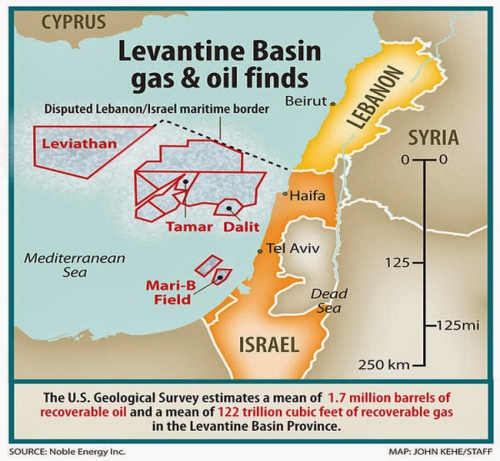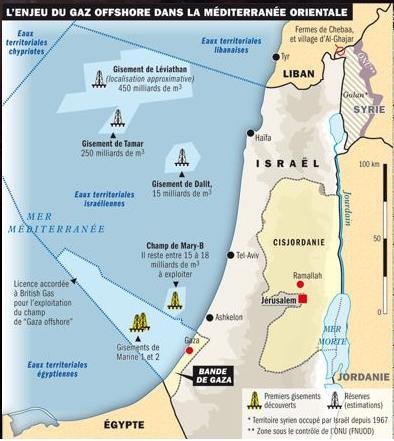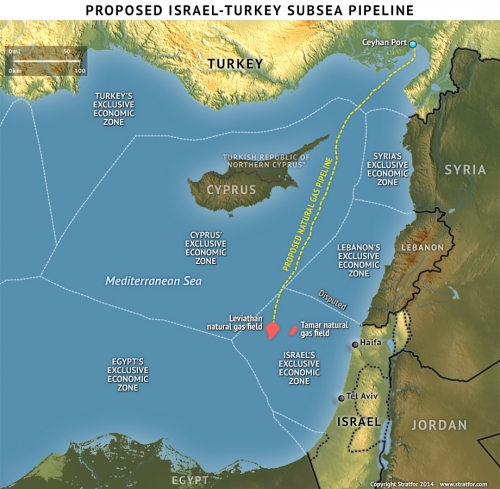Azerbaijani cargo planes landing at Israeli air force bases in the Negev are a relatively common sight, attesting to the extensive arms deals between the two countries. But the frequency of arrivals and timing of Ilyushin Il-76 freighters – two of which landed at Uvda last Thursday, just two days before a major escalation in the ongoing conflict between Azerbaijan and Armenia, followed by two more on Tuesday and Wednesday – suggest both the preparation and replenishing of Azerbaijani forces for the latest bout of fighting around the Nagorno-Karabakh enclave, now in its fourth day.
The Israeli government has refrained from making any statements on the situation in the South Caucasus. Officially it isn’t taking sides, and it also has diplomatic relations with Armenia, which only two weeks ago opened its first embassy in Tel Aviv. Israeli officials stress quietly that “we have interests on both sides,” and Israel certainly won’t openly defy the Russian government, which is one of Armenia’s patrons (though it sells arms to Azerbaijan as well).
It’s not just the lucrative arms deals, which are reported to include drones, missiles and radar systems. Israel considers Azerbaijan a strategic ally. The kleptocracy on the Caspian is the source of much of the oil Israel purchases and, due to its geographic location, an extremely useful “backdoor” to its neighbor Iran for intelligence and other clandestine purposes – especially as the Shi’a-majority country is also resolutely secular and has long been suspicious of the revolutionary ambitions of the Islamic republic to its south.
But Azerbaijan’s ethnic ties are much stronger with another regional power, Turkey – which, according to reports from Nagorno-Karabakh, mainly from Armenian sources, is much more involved in this current escalation than in previous ones. The Armenians claim that Turkish drones are being used, that a Turkish F-16 fighter jet shot down one of its aircraft and even that Syrian fighters from the Turkish-backed Syrian National Army have been deployed there. Turkey has denied reports that it’s militarily involved, but is vocally supportive of Azerbaijan.
For the first time for a long while, Israel seems to be on the same side as Turkey.
Is this a temporary and coincidental common interest, or a sign that some elements of the old Israel-Turkey alliance still endure?
For the past 12 years, since Israel’s Operation Cast Lead in Gaza, relations between the two countries have been on a steady downward trajectory. In the first few years, there were those who still believed it was a temporary situation, due to Recep Tayyip Erdogan’s attempts to bolster his position in the region.
Today, though, the consensus in the Israeli security and intelligence establishment is that the increasingly autocratic Erdogan is an incurable antisemite and that as long as he’s Turkey’s leader, there’s no prospect for real improvement in those ties.
Despite Turkey itself still maintaining low-level diplomatic ties and extensive commercial relations with Israel, Erdogan fiercely condemned the recent “normalization” of relations and agreements between Israel and the United Arab Emirates and Bahrain. In recent years, Turkey has started hosting key Hamas leaders, allowing them to establish offices in Istanbul and even giving some of them Turkish citizenship. This is partly due to Erdogan’s desire to portray himself as the protector of the Palestinians and his own personal affinity with the Muslim Brotherhood movement, which lost its original base in Egypt after the 2013 coup against then-President Mohammed Morsi.
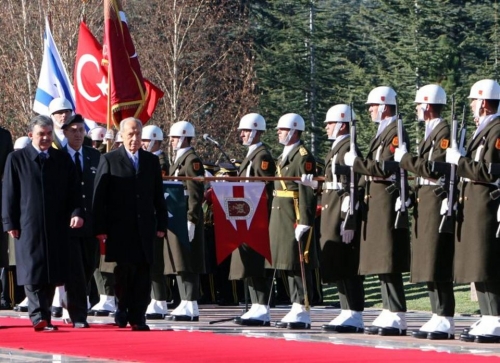
The argument within the Israeli intelligence community over whether the break with Turkey is temporary and only due to Erdogan or whether it represents a deeper shift is still ongoing. To a large degree, it depends on the personal relations any specific official had with Turkish contemporaries in the past. For example, a senior officer in the Israel Air Force, who just over a decade ago was still training in Turkey’s airspace and continued maintaining ties with Turkish contemporaries through various NATO forums, said last year that he’s convinced “Turkey is not an enemy and will be a close ally again once Erdogan is gone.”
On the other hand, intelligence officials who have seen how Hamas operations in the West Bank are increasingly being directed from Istanbul – and how the Turkish MIT intelligence service has come under the control of Erdogan confidants who are inclined toward working closely with Iran – are convinced that even if Erdogan is forced to resign, or dies, his successors may well continue his policies.
“It will certainly take years for the relationship we once had to be restored,” one intelligence analyst said. “The test will be whether the Hamas offices are closed down.”
More than anything, it depends on Iran – which brings us back to Nagorno-Karabakh.
Despite overtures from both sides, the historical enmity between the Ottomans and the Persians, and the rivalry for control in various hot spots across the region, make it difficult for Turkey and Iran to create a lasting alliance.
Iran has been one of Armenia’s main supporters on Nagorno-Karabakh, creating for Israel an opportunity for back-channel dialogue with Erdogan’s Turkey and hopefully widening the rift between Ankara and Tehran.
For decades, Israel’s allies in the region were the non-Arab powers, Turkey and Iran, who joined Israel in the unofficial “alliance of the periphery,” which was decimated first by Iran’s Islamic revolution in 1979 and then the rise of Erdogan from 2003 onward. Now, Israel is closer than ever to the pro-Western bloc of Arab nations that include the UAE, Saudi Arabia and Egypt, which share Israel’s hostility toward Iran and Turkey, and is vying with them for regional dominance in a series of proxy conflicts in Syria, Yemen, Lebanon and Libya.
The arms shipments to Azerbaijan and the flare-up in Nagorno-Karabakh is a reminder that the periphery alliance may not be entirely dead.



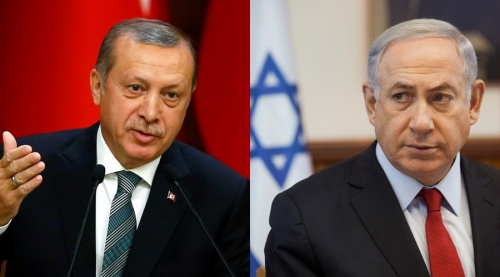

 del.icio.us
del.icio.us
 Digg
Digg

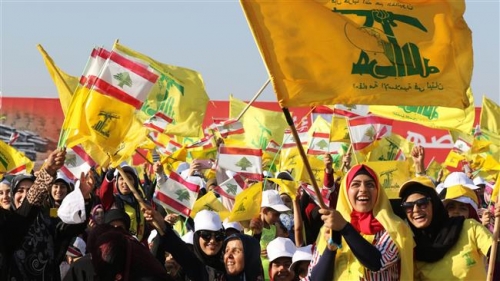
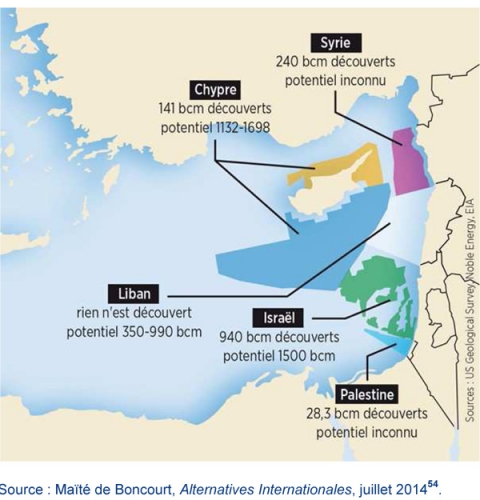
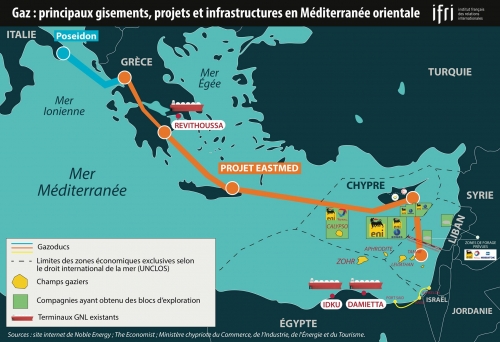
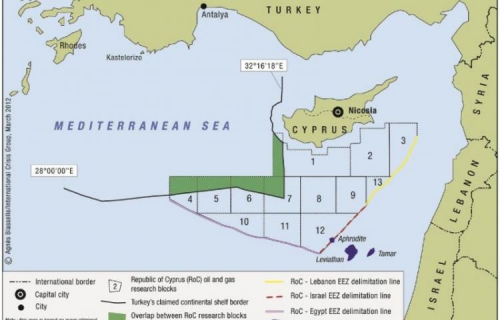
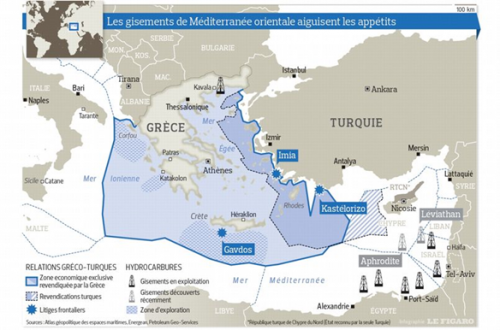


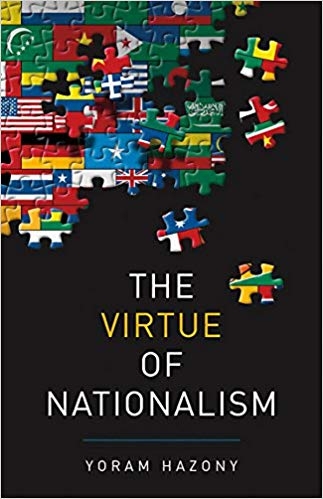 Hazony defines the nation-state in contradistinction to two alternatives: tribal anarchy and imperialism. Tribal anarchy is basically a condition of more or less perpetual suspicion, injustice, and conflict that exists between tribes of the same nation in the absence of a common government. Imperialism is an attempt to extend common government to the different nations of the world, which exist in a state of anarchy vis-à-vis each other.
Hazony defines the nation-state in contradistinction to two alternatives: tribal anarchy and imperialism. Tribal anarchy is basically a condition of more or less perpetual suspicion, injustice, and conflict that exists between tribes of the same nation in the absence of a common government. Imperialism is an attempt to extend common government to the different nations of the world, which exist in a state of anarchy vis-à-vis each other.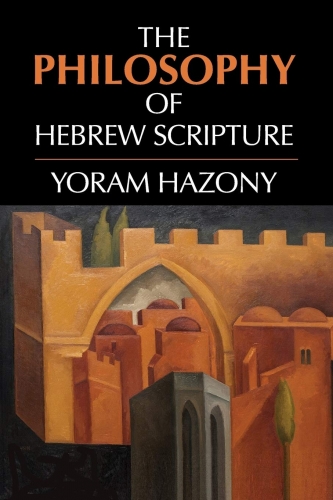 Hazony argues that nationalism has a number of advantages over tribal anarchy. The small states of ancient Greece, medieval Italy, and modern Germany wasted a great deal of blood and wealth in conflicts that were almost literally fratricidal, and that made these peoples vulnerable to aggression from entirely different peoples. Unifying warring “tribes” of the same peoples under a nation-state created peace and prosperity within their borders and presented a united front to potential enemies from without.
Hazony argues that nationalism has a number of advantages over tribal anarchy. The small states of ancient Greece, medieval Italy, and modern Germany wasted a great deal of blood and wealth in conflicts that were almost literally fratricidal, and that made these peoples vulnerable to aggression from entirely different peoples. Unifying warring “tribes” of the same peoples under a nation-state created peace and prosperity within their borders and presented a united front to potential enemies from without.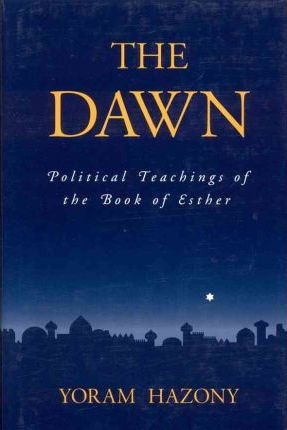 The “mutual loyalty” at the heart of nation-states is a product of a common ethnicity. How does ethnic unity make free institutions possible? Every society needs order. Order either comes from within the individual or is imposed from without. A society in which individuals share a strong normative culture does not need a heavy-handed state to impose social order.
The “mutual loyalty” at the heart of nation-states is a product of a common ethnicity. How does ethnic unity make free institutions possible? Every society needs order. Order either comes from within the individual or is imposed from without. A society in which individuals share a strong normative culture does not need a heavy-handed state to impose social order. In fact, Hazony argues, imperialism is far more conducive to hatred and violence than nationalism.
In fact, Hazony argues, imperialism is far more conducive to hatred and violence than nationalism.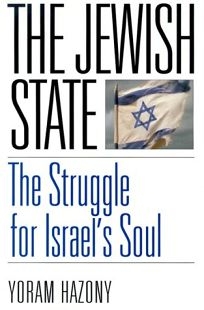 The third principle is “government monopoly of organized force within the state” (p. 177), as opposed to tribal anarchy. A failed state is one in which different ethnic groups create their own militias.
The third principle is “government monopoly of organized force within the state” (p. 177), as opposed to tribal anarchy. A failed state is one in which different ethnic groups create their own militias. The difference between good nationalism and bad nationalism is simple: Good nationalism is universalist. A good nationalist wants to ensure the sovereignty of his own people, but does not wish to deny the sovereignty of other peoples. Instead, he envisions a global order of sovereign nations, to the extent that this is possible. Hazony, however, wishes to stop short of the idea of a universal right to self-determination, which I will deal with at greater length later.
The difference between good nationalism and bad nationalism is simple: Good nationalism is universalist. A good nationalist wants to ensure the sovereignty of his own people, but does not wish to deny the sovereignty of other peoples. Instead, he envisions a global order of sovereign nations, to the extent that this is possible. Hazony, however, wishes to stop short of the idea of a universal right to self-determination, which I will deal with at greater length later.
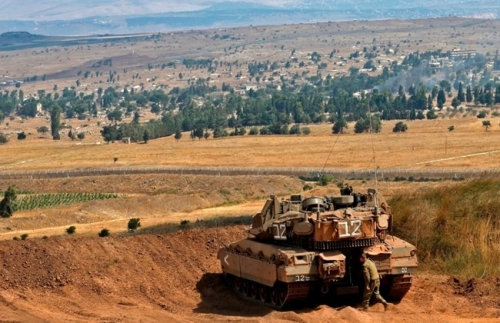

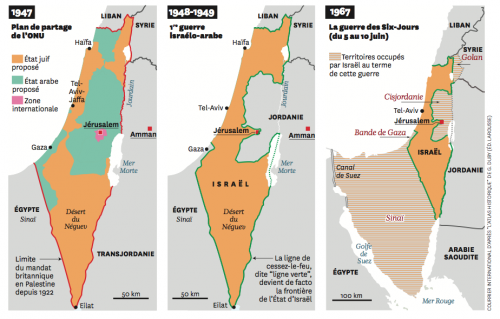
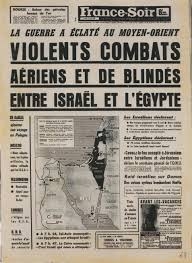 Dans le monde arabe, à la défaite militaire s’ajoute la défaite symbolique. Il y a bien évidemment l’humiliation de l’occupation : le Sinaï égyptien (qui sera récupéré par le président Sadate), le Golan syrien (annexé en 1981), les fermes libanaises de Chebaa et les territoires palestiniens de Gaza et de Cisjordanie (dont Jérusalem-Est), administrés auparavant par l’Égypte et la Jordanie. Il y a aussi la spoliation du peuple palestinien, qui se retrouve occupé et malmené pendant des décennies par une puissance étrangère. Mais il y a aussi l’échec du nationalisme arabe qui en annoncera bien d’autres. Cet échec de trois grandes armées arabes encouragera le réveil de la résistance palestinienne. Dans les années 1970, l’Organisation de libération de la Palestine (OLP) jouera un rôle analogue à celui de Nasser, décédé en 1970. En Jordanie comme au Liban, Yasser Arafat apparaîtra comme une figure tutélaire à son tour, stimulé par quelques succès militaires dont les grandes armées arabes ont été incapables. On retrouvera ce phénomène avec le Hezbollah libanais. Un peu plus de dix ans après cette guerre, à la cause arabe contre Israël se substituera une cause nouvelle, nourrie par la montée du wahhabisme à la faveur des pétrodollars, celle de la guerre d’Afghanistan (1979). Tandis que l’Égypte vient de signer un traité de paix avec Israël (ce que la Jordanie fera en 1994), des milliers de combattants venus du monde arabe se retrouveront ainsi plongés dans un conflit lointain au nom d’une appartenance religieuse, encouragés par les Américains et contre l’ennemi « impie » tout désigné : l’Union soviétique.
Dans le monde arabe, à la défaite militaire s’ajoute la défaite symbolique. Il y a bien évidemment l’humiliation de l’occupation : le Sinaï égyptien (qui sera récupéré par le président Sadate), le Golan syrien (annexé en 1981), les fermes libanaises de Chebaa et les territoires palestiniens de Gaza et de Cisjordanie (dont Jérusalem-Est), administrés auparavant par l’Égypte et la Jordanie. Il y a aussi la spoliation du peuple palestinien, qui se retrouve occupé et malmené pendant des décennies par une puissance étrangère. Mais il y a aussi l’échec du nationalisme arabe qui en annoncera bien d’autres. Cet échec de trois grandes armées arabes encouragera le réveil de la résistance palestinienne. Dans les années 1970, l’Organisation de libération de la Palestine (OLP) jouera un rôle analogue à celui de Nasser, décédé en 1970. En Jordanie comme au Liban, Yasser Arafat apparaîtra comme une figure tutélaire à son tour, stimulé par quelques succès militaires dont les grandes armées arabes ont été incapables. On retrouvera ce phénomène avec le Hezbollah libanais. Un peu plus de dix ans après cette guerre, à la cause arabe contre Israël se substituera une cause nouvelle, nourrie par la montée du wahhabisme à la faveur des pétrodollars, celle de la guerre d’Afghanistan (1979). Tandis que l’Égypte vient de signer un traité de paix avec Israël (ce que la Jordanie fera en 1994), des milliers de combattants venus du monde arabe se retrouveront ainsi plongés dans un conflit lointain au nom d’une appartenance religieuse, encouragés par les Américains et contre l’ennemi « impie » tout désigné : l’Union soviétique.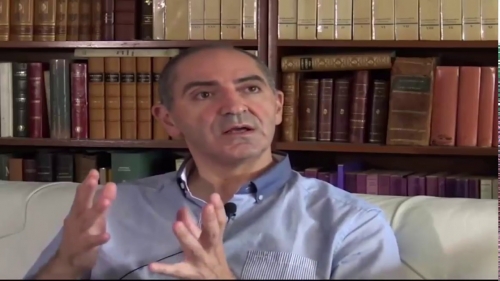
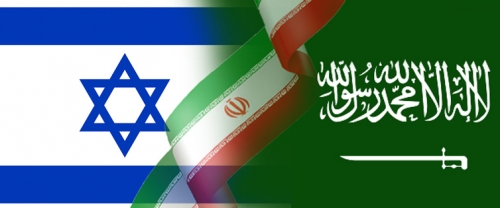




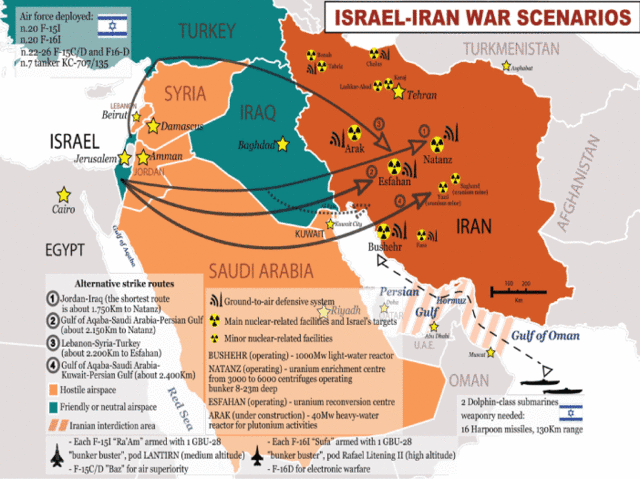
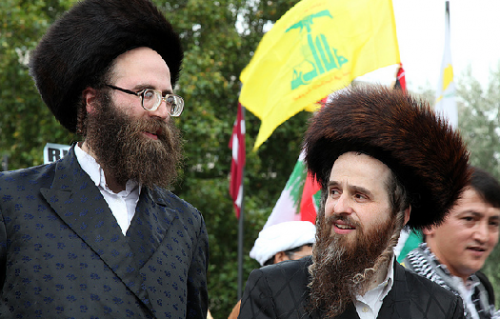
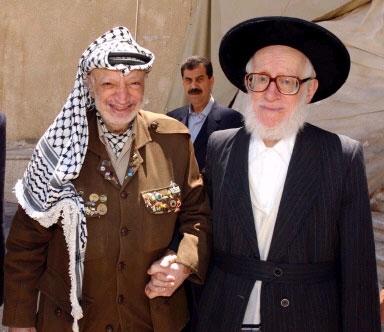
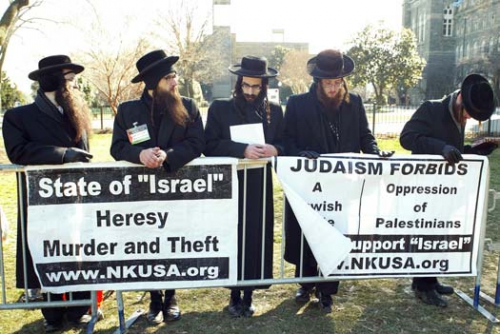

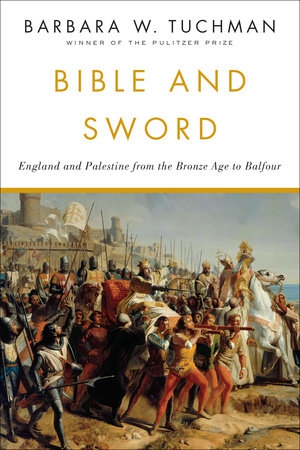 As Jewish scholar Barbara Tuchman documented in her famous account of British Zionism, Bible and Sword, the roots of Christian Zionism went back to the British Imperial ideology, in which certain very prominent British establishment figures including Lord Palmerston, Lord Balfour and Shaftesbury saw support for a Jewish home in Palestine as part of a manufactured or synthetic ideology in which they claimed the British people to be the ‘Chosen People’, the ‘Lost Tribe of Israel.’
As Jewish scholar Barbara Tuchman documented in her famous account of British Zionism, Bible and Sword, the roots of Christian Zionism went back to the British Imperial ideology, in which certain very prominent British establishment figures including Lord Palmerston, Lord Balfour and Shaftesbury saw support for a Jewish home in Palestine as part of a manufactured or synthetic ideology in which they claimed the British people to be the ‘Chosen People’, the ‘Lost Tribe of Israel.’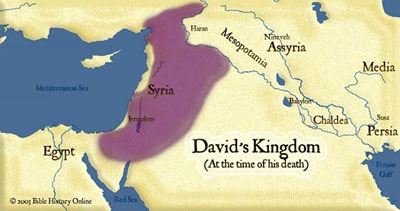
 Graham, who controlled an organization known as the Samaritan Purse, was a close religious adviser to George W. Bush. In 2003 Graham got permission from the US occupation authorities to bring his Evangelical anti-Islam form of Christianity into Iraq to win “converts” to his fanatical brand of Christianity.
Graham, who controlled an organization known as the Samaritan Purse, was a close religious adviser to George W. Bush. In 2003 Graham got permission from the US occupation authorities to bring his Evangelical anti-Islam form of Christianity into Iraq to win “converts” to his fanatical brand of Christianity. 
 In 1979, Reverend Jerry Falwell, a member of the Committee on National Policy and a Christian Zionist leading figure, launched an organisation known as the Moral Majority with the aim ‘to mobilize the Christian church on behalf of moral and social issues and to encourage participation by people of faith in the political process.’
In 1979, Reverend Jerry Falwell, a member of the Committee on National Policy and a Christian Zionist leading figure, launched an organisation known as the Moral Majority with the aim ‘to mobilize the Christian church on behalf of moral and social issues and to encourage participation by people of faith in the political process.’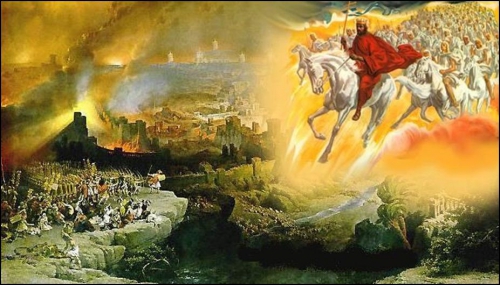
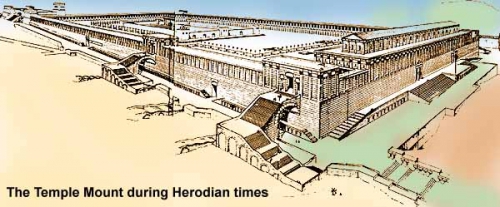

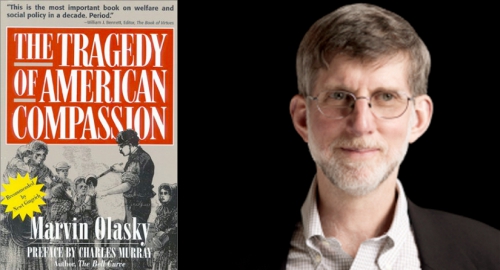
 Rabbi Eckstein had built his International Fellowship for Christians and Jews into a philanthropic powerhouse that donated tens of millions of dollars to Israel annually. He forged close relationships with popular right-wing evangelical leaders such as Pat Robertson and Gary Bauer, as well as White House neoconservatives like Elliott Abrams, who was in charge of Middle East policy on the National Security Council of Condi Rice. Eckstein and his allies played an instrumental role in pressuring the Bush administration to abandon the so-called Road Map to peace and defend Sharon's and later Olmert’s brutal handling of the occupation.
Rabbi Eckstein had built his International Fellowship for Christians and Jews into a philanthropic powerhouse that donated tens of millions of dollars to Israel annually. He forged close relationships with popular right-wing evangelical leaders such as Pat Robertson and Gary Bauer, as well as White House neoconservatives like Elliott Abrams, who was in charge of Middle East policy on the National Security Council of Condi Rice. Eckstein and his allies played an instrumental role in pressuring the Bush administration to abandon the so-called Road Map to peace and defend Sharon's and later Olmert’s brutal handling of the occupation.
 Another secretive organization with significant hidden influence with the Bush White House was the Apostolic Congress.
Another secretive organization with significant hidden influence with the Bush White House was the Apostolic Congress. One of the most influential right-wing American Evangelicals linked intimately to the Bush White House, until a scandal forced his retirement just before the November 2006 US Congressional elections was Pastor Ted Haggard, founder of the 11,000 member New Life Church near Colorado Springs, Colorado, home of the US Air Force Academy.
One of the most influential right-wing American Evangelicals linked intimately to the Bush White House, until a scandal forced his retirement just before the November 2006 US Congressional elections was Pastor Ted Haggard, founder of the 11,000 member New Life Church near Colorado Springs, Colorado, home of the US Air Force Academy.
 Alison Weir's relatively short book covers the history of Zionism in the United States from the last decades of the 19th century until the creation of the state of Israel in 1948. (She is working on a second volume that will carry this history to the present.) Its brevity does not mean, however, that it is in any sense superficial, as it brings out key historical information, all well-documented, that sets the stage for the troubled world in which we now live. While histories of Zionism have usually focused on Europe, Weir shows that American adherents of this ideology have been far more important than generally has been recognized
Alison Weir's relatively short book covers the history of Zionism in the United States from the last decades of the 19th century until the creation of the state of Israel in 1948. (She is working on a second volume that will carry this history to the present.) Its brevity does not mean, however, that it is in any sense superficial, as it brings out key historical information, all well-documented, that sets the stage for the troubled world in which we now live. While histories of Zionism have usually focused on Europe, Weir shows that American adherents of this ideology have been far more important than generally has been recognized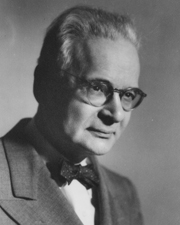 Kallen was regarded by some as first promoting the idea for what became the Balfour Declaration, which would set the stage for the modern state of Israel. He promoted this scheme in 1915 when the U.S. was still a neutral. He told a British friend that this would serve to bring the United States into World War I. It should be pointed out that at that time, despite serious diplomatic issues regarding German submarine warfare, the great majority of the American people wanted to avoid war and Wilson would be re-elected president in November 1916 on the slogan “He kept us out of war.” Kallen’s idea for advancing the Zionist goal, however, soon gained traction.
Kallen was regarded by some as first promoting the idea for what became the Balfour Declaration, which would set the stage for the modern state of Israel. He promoted this scheme in 1915 when the U.S. was still a neutral. He told a British friend that this would serve to bring the United States into World War I. It should be pointed out that at that time, despite serious diplomatic issues regarding German submarine warfare, the great majority of the American people wanted to avoid war and Wilson would be re-elected president in November 1916 on the slogan “He kept us out of war.” Kallen’s idea for advancing the Zionist goal, however, soon gained traction. Although Segev is a daring historian who often rejects the Zionist myths on the creation of Israel, in this case he essentially relies on a classic Zionist-constructed strawman, which involves greatly exaggerating the view that the Zionists (and Jews in general) don’t like. It is highly doubtful that the British foreign office believed that Jews were so powerful as to be “turning the wheels of history.” (If that had been the case, one would think that the British would have offered Jews much more than Palestine from the very start of the war.) Furthermore, as noted earlier, Weir does not subscribe to anything like this Zionist strawman in regard to the Balfour Declaration, or anything else, I should add.
Although Segev is a daring historian who often rejects the Zionist myths on the creation of Israel, in this case he essentially relies on a classic Zionist-constructed strawman, which involves greatly exaggerating the view that the Zionists (and Jews in general) don’t like. It is highly doubtful that the British foreign office believed that Jews were so powerful as to be “turning the wheels of history.” (If that had been the case, one would think that the British would have offered Jews much more than Palestine from the very start of the war.) Furthermore, as noted earlier, Weir does not subscribe to anything like this Zionist strawman in regard to the Balfour Declaration, or anything else, I should add.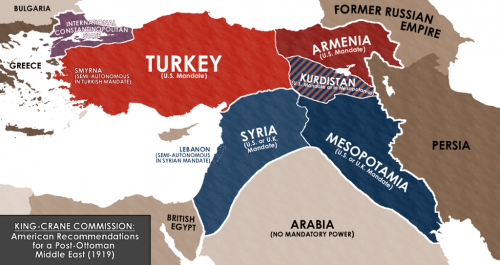
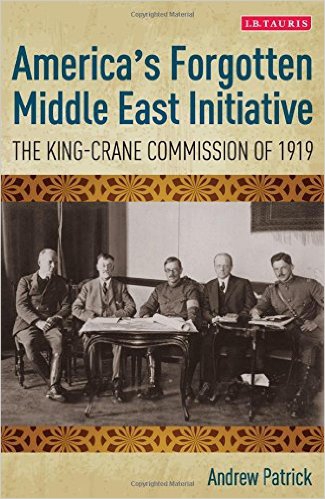 One minor criticism here is that the reader might incorrectly get the impression that the King-Crane Commission dealt solely with Palestine, while it actually involved all the territories severed from, or expected to be severed from, the Ottoman Empire (Turkey).
One minor criticism here is that the reader might incorrectly get the impression that the King-Crane Commission dealt solely with Palestine, while it actually involved all the territories severed from, or expected to be severed from, the Ottoman Empire (Turkey).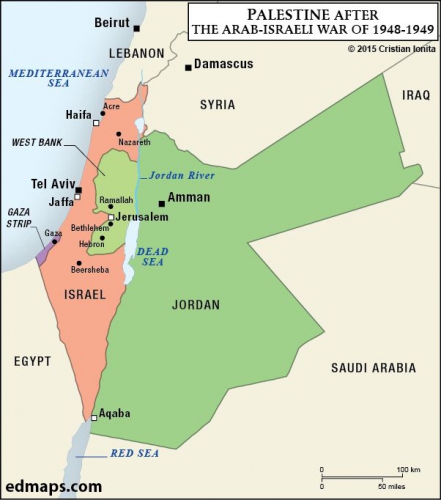
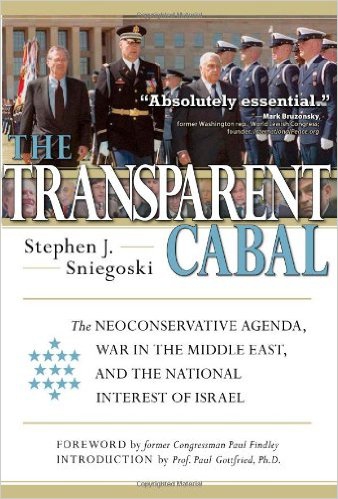 A quick aside here: somewhat ironically, in my view, Weir barely touches on the United States decision to recognize Israel. Moreover, what does exist is largely in the endnotes. Although there will be a second volume to Weir’s history, and the cut-off point for this volume has to be somewhere, still the fact that the book does make reference to events in 1948 would seem to have made it appropriate to discuss in some detail the issue of America’s quick recognition of Israel.
A quick aside here: somewhat ironically, in my view, Weir barely touches on the United States decision to recognize Israel. Moreover, what does exist is largely in the endnotes. Although there will be a second volume to Weir’s history, and the cut-off point for this volume has to be somewhere, still the fact that the book does make reference to events in 1948 would seem to have made it appropriate to discuss in some detail the issue of America’s quick recognition of Israel. Weir includes a brief reference to Leon Uris’s bestselling 1958 novel on the Exodus ship, and though it falls outside the chronological purview of this volume, I would add that the impact of the already mythologized Exodus event was greatly magnified by Uris’s book, which sold over 7 million copies and was turned into a blockbuster movie in 1960 by Otto Preminger, a leading film director of the era. The film has been identified by many commentators as having greatly enhanced support for Israel in the United States by Jews as well as gentiles and in the view of some scholars this movie has had a lasting effect on how Americans view the Israeli–Palestinian conflict. Weir even acknowledges that it had initially shaped her thinking on the subject.
Weir includes a brief reference to Leon Uris’s bestselling 1958 novel on the Exodus ship, and though it falls outside the chronological purview of this volume, I would add that the impact of the already mythologized Exodus event was greatly magnified by Uris’s book, which sold over 7 million copies and was turned into a blockbuster movie in 1960 by Otto Preminger, a leading film director of the era. The film has been identified by many commentators as having greatly enhanced support for Israel in the United States by Jews as well as gentiles and in the view of some scholars this movie has had a lasting effect on how Americans view the Israeli–Palestinian conflict. Weir even acknowledges that it had initially shaped her thinking on the subject. In 1939, Time Magazine named Thompson the second most popular and influential woman in America behind Eleanor Roosevelt.
In 1939, Time Magazine named Thompson the second most popular and influential woman in America behind Eleanor Roosevelt.
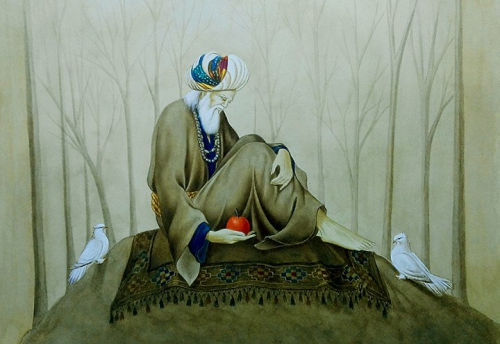



 [19] De Jong, “Machreq arabe,” 217-218.
[19] De Jong, “Machreq arabe,” 217-218. 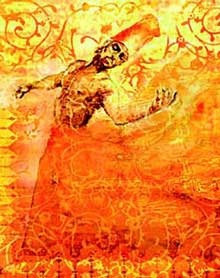 [46] Frederick De Jong, “The Naqshbandiyya in Egypt and Syria. Aspects of its History, and Observations Concerning its Present-Day Condition,” in Marc Gaborieau, Alexandre Popovic and Thierry Zarcone (eds.), Naqshbandis: cheminements et situation actuelle d’un ordre mystique musulman (Istanbul and Paris: ISIS, 1990), 600.
[46] Frederick De Jong, “The Naqshbandiyya in Egypt and Syria. Aspects of its History, and Observations Concerning its Present-Day Condition,” in Marc Gaborieau, Alexandre Popovic and Thierry Zarcone (eds.), Naqshbandis: cheminements et situation actuelle d’un ordre mystique musulman (Istanbul and Paris: ISIS, 1990), 600. 
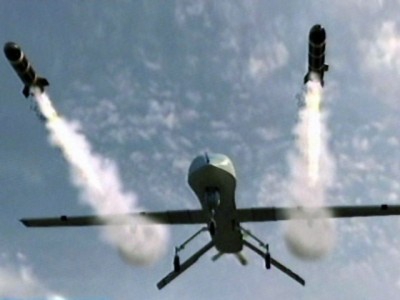 Despite the high level of civilian casualties, Clinton has long been a strong supporter of drone strikes in Afghanistan and Pakistan. In an interview with The Guardian in July 2014,
Despite the high level of civilian casualties, Clinton has long been a strong supporter of drone strikes in Afghanistan and Pakistan. In an interview with The Guardian in July 2014, 

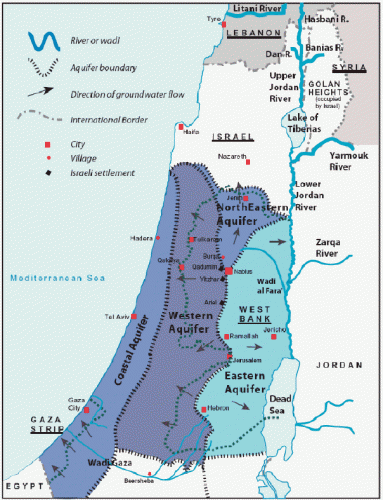 Comment l’Etat Hébreux pourrait-il accepter de partager de manière plus équitable cette ressource si rare et risquer de se mettre en péril ?
Comment l’Etat Hébreux pourrait-il accepter de partager de manière plus équitable cette ressource si rare et risquer de se mettre en péril ?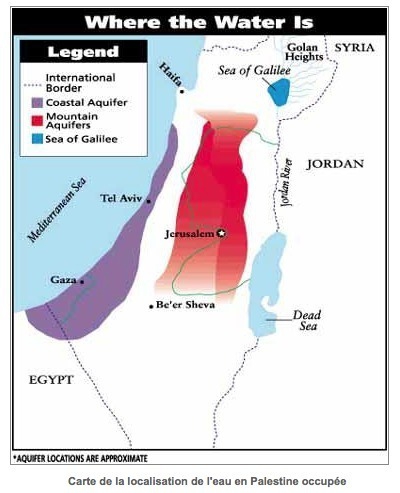 C’est dans ce contexte qu’un hydrologue américain, Elwood Mead, sera invité par les sionistes à venir en Palestine, c’est chose faite en 1923 et en 1927.
C’est dans ce contexte qu’un hydrologue américain, Elwood Mead, sera invité par les sionistes à venir en Palestine, c’est chose faite en 1923 et en 1927. C’est pourquoi, aucun responsable politique israélien ne peut renoncer à « l’or bleu » des Territoires occupés. Israël considère comme un casus belli toute tentative d’appropriation de ses ressources en eau par les pays voisins. C’est le cas par exemple pour la Syrie, qui convoite une partie du Jourdain. Aujourd’hui le territoire de Gaza restitué aux Palestiniens, est un territoire qui a connu des pompages tellement excessifs que ce qu’il reste d’eau est impropre à la consommation (pollution, salinisation…), sachant que les nappes phréatiques mettent des décennies à se reconstituer.
C’est pourquoi, aucun responsable politique israélien ne peut renoncer à « l’or bleu » des Territoires occupés. Israël considère comme un casus belli toute tentative d’appropriation de ses ressources en eau par les pays voisins. C’est le cas par exemple pour la Syrie, qui convoite une partie du Jourdain. Aujourd’hui le territoire de Gaza restitué aux Palestiniens, est un territoire qui a connu des pompages tellement excessifs que ce qu’il reste d’eau est impropre à la consommation (pollution, salinisation…), sachant que les nappes phréatiques mettent des décennies à se reconstituer.
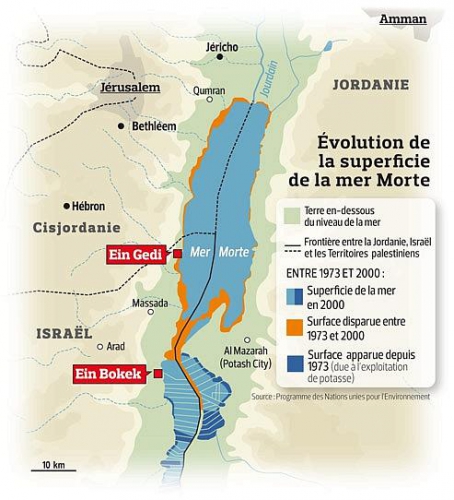 De plus en plus d’espoir sont placés dans le projet fou consistant à faire revivre la mer Morte, qui était à terme condamnée si aucune action politique n’était entreprise. Comme la mer d’Aral, ce lac salé a perdu en un demi-siècle près du tiers de sa superficie, si bien qu’il est aujourd’hui divisé en deux bassins distincts. En cause, les prélèvements excessifs du Jourdain qui l’alimente et l’évaporation importante de l’eau due aux usines de production de sel qui le bordent.
De plus en plus d’espoir sont placés dans le projet fou consistant à faire revivre la mer Morte, qui était à terme condamnée si aucune action politique n’était entreprise. Comme la mer d’Aral, ce lac salé a perdu en un demi-siècle près du tiers de sa superficie, si bien qu’il est aujourd’hui divisé en deux bassins distincts. En cause, les prélèvements excessifs du Jourdain qui l’alimente et l’évaporation importante de l’eau due aux usines de production de sel qui le bordent.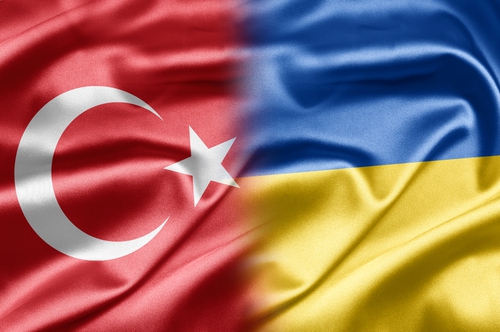


 La haine et la peur des juifs faisaient partie intégrale des codes culturels, dans toutes les couches de la société européenne. Cet état de fait s’est, fort heureusement, modifié dans les années qui ont suivi la fin de la seconde guerre mondiale. Et si, bien sûr, il subsiste encore des préjugés à l’encontre des descendants imaginaires des meurtriers de Jésus Christ, il n’en demeure pas moins que, dans le monde occidental : de Los Angeles à Berlin, de Naples à Stockholm, de Buenos-Aires à Toronto, quelqu’un d’ouvertement judéophobe ne peut plus être journaliste ou présentateur à la télévision, ni occuper une place dirigeante dans la grande presse, ou encore détenir une chaire de professeur à l’université.
La haine et la peur des juifs faisaient partie intégrale des codes culturels, dans toutes les couches de la société européenne. Cet état de fait s’est, fort heureusement, modifié dans les années qui ont suivi la fin de la seconde guerre mondiale. Et si, bien sûr, il subsiste encore des préjugés à l’encontre des descendants imaginaires des meurtriers de Jésus Christ, il n’en demeure pas moins que, dans le monde occidental : de Los Angeles à Berlin, de Naples à Stockholm, de Buenos-Aires à Toronto, quelqu’un d’ouvertement judéophobe ne peut plus être journaliste ou présentateur à la télévision, ni occuper une place dirigeante dans la grande presse, ou encore détenir une chaire de professeur à l’université.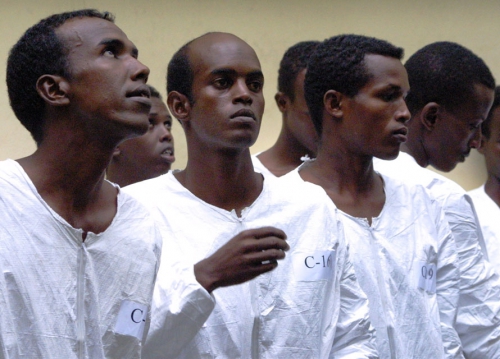

 Le second récit présente les Beta Israël comme les descendants de la tribu de Dan, une des « Dix tribus perdues » (déportées par les Assyriens en 722 avant Jésus-Christ). En Israël, ce récit tend à devenir dominant, sans doute car il est officiellement accepté par le grand rabbinat israélien en 1973.
Le second récit présente les Beta Israël comme les descendants de la tribu de Dan, une des « Dix tribus perdues » (déportées par les Assyriens en 722 avant Jésus-Christ). En Israël, ce récit tend à devenir dominant, sans doute car il est officiellement accepté par le grand rabbinat israélien en 1973.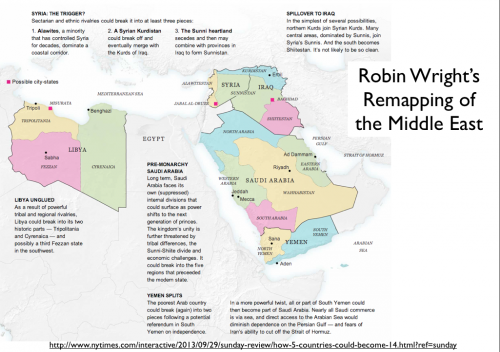
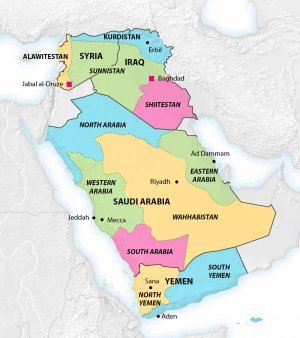 The Israelis predicted that Syrian president Bashar al-Assad would rule over what the Israelis called "Little Syria," withy effective control of only 20 to 30 percent of the country. The Israelis saw the remainder of Syria in the hands of jihadist groups like the Islamic State and Jabhat al-Nusra, with smaller cantons in the hands of Syrian Kurds and non-jihadist Sunni tribes, all of which would be fighting each other, as well as against the Assad government. The report supported Israel enhancing its position in the Golan Heights. In fact, Israel has done much more than that. The Jewish state has actively supported logistically and with weapons and intelligence Syrian and foreign jihadists, including Jabhat al-Nusra and the Islamic State forces that have militarily engaged Assad’s forces and Lebanese Hezbollah near the Golan Heights, which remains in Israeli hands without any threat to Israel’s interests in the region from the Islamic State.
The Israelis predicted that Syrian president Bashar al-Assad would rule over what the Israelis called "Little Syria," withy effective control of only 20 to 30 percent of the country. The Israelis saw the remainder of Syria in the hands of jihadist groups like the Islamic State and Jabhat al-Nusra, with smaller cantons in the hands of Syrian Kurds and non-jihadist Sunni tribes, all of which would be fighting each other, as well as against the Assad government. The report supported Israel enhancing its position in the Golan Heights. In fact, Israel has done much more than that. The Jewish state has actively supported logistically and with weapons and intelligence Syrian and foreign jihadists, including Jabhat al-Nusra and the Islamic State forces that have militarily engaged Assad’s forces and Lebanese Hezbollah near the Golan Heights, which remains in Israeli hands without any threat to Israel’s interests in the region from the Islamic State.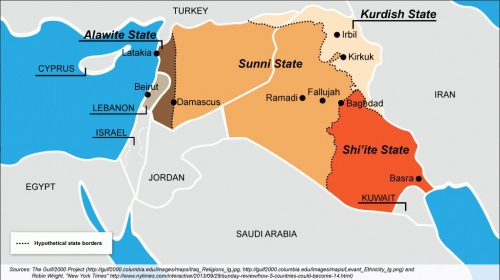
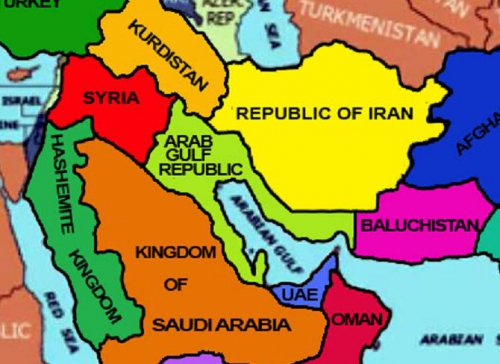
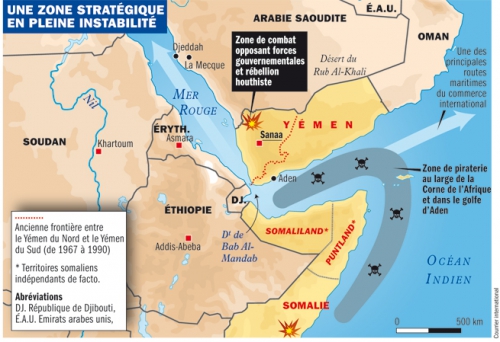
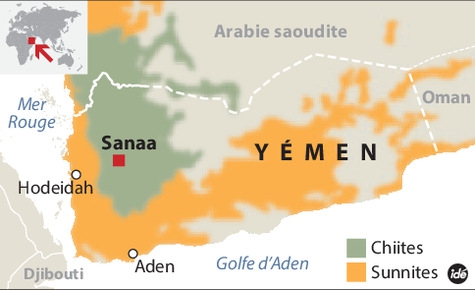
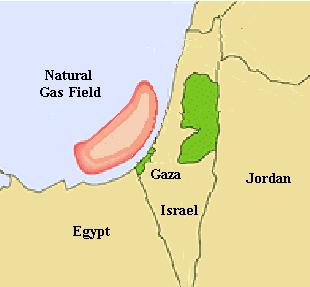 Talk of an oil glut and a potential
Talk of an oil glut and a potential 